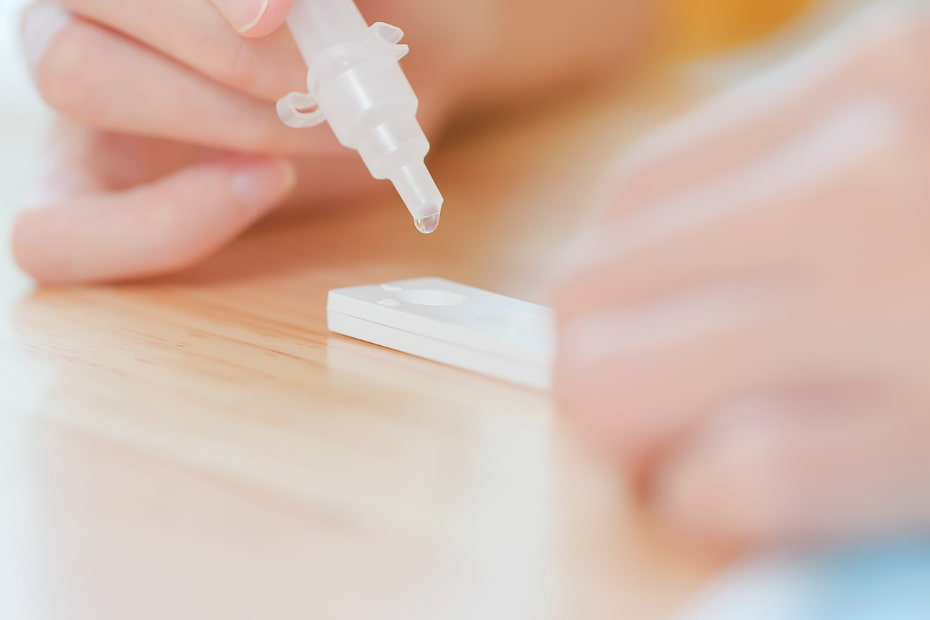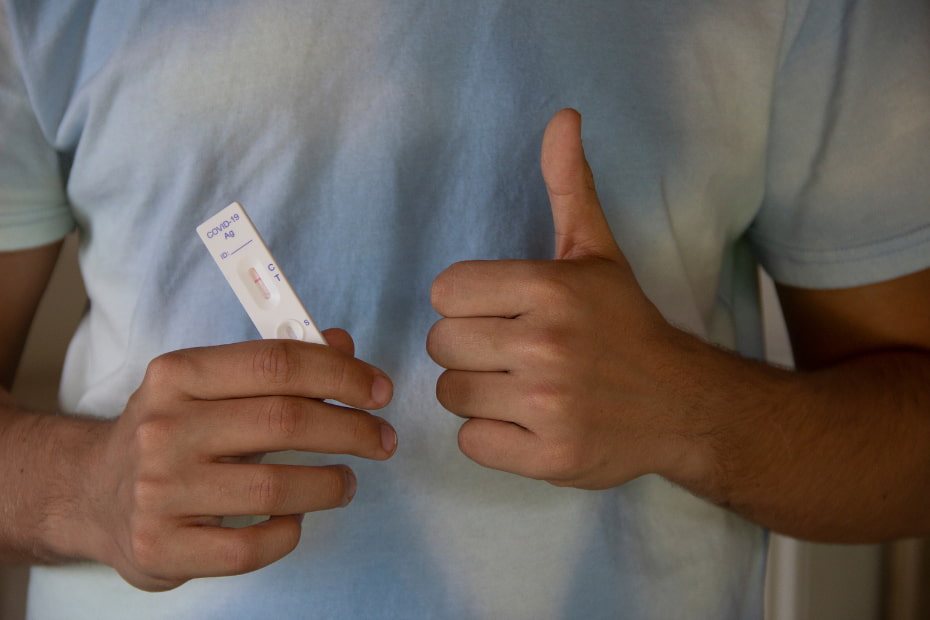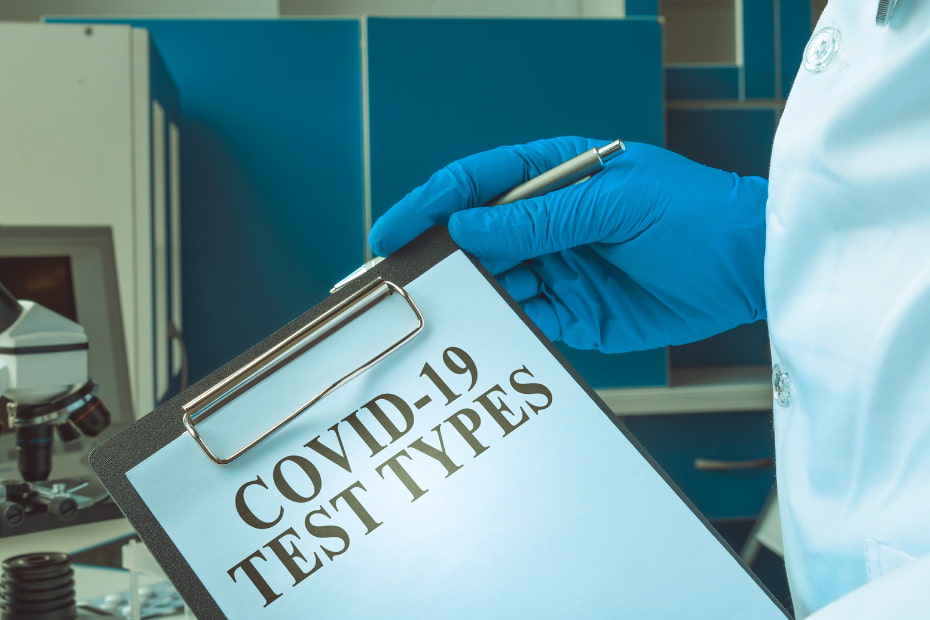Are you confused about the difference between PCR tests and antigen tests? In the realm of COVID-19 testing, these two terms often surface, leaving many people uncertain about their dissimilarities. In this blog, we will delve into the world of diagnostic testing, dissecting the disparities between PCR tests and antigen tests, providing you with a comprehensive understanding of each methodology.
Types of COVID-19 tests
In the world of COVID-19 diagnostics, two commonly employed testing methods are Polymerase Chain Reaction (PCR) tests and antigen tests. These tests play a crucial role in detecting the presence of the SARS-CoV-2 virus, which causes COVID-19. Let’s explore the differences between PCR tests and antigen tests and understand their unique characteristics.
PCR Tests: Amplifying Genetic Material for Precise Detection
In the world of COVID-19 diagnostics, two commonly used testing methods are Polymerase Chain Reaction (PCR) tests and antigen tests. PCR tests rely on amplifying and detecting the genetic material of the virus, offering high sensitivity and accuracy. Antigen tests, also known as rapid antigen tests, detect specific proteins on the surface of the virus and provide rapid results at the point of care. Understanding the distinctions between PCR tests and antigen tests is crucial for selecting the appropriate test based on sensitivity, turnaround time, and testing goals.
PCR test

Polymerase Chain Reaction (PCR) tests have emerged as a gold standard in COVID-19 diagnostics, offering exceptional sensitivity and accuracy. By amplifying and detecting the genetic material of the virus, PCR tests play a crucial role in identifying even small traces of the SARS-CoV-2 virus in a patient sample.
How it works
PCR testing, based on the polymerase chain reaction, is a fundamental diagnostic tool in detecting COVID-19. A nasal swab is collected from the patient, and the genetic material (RNA) of the virus is extracted and converted into complementary DNA (cDNA) through reverse transcription. The cDNA serves as a template for DNA replication, as the sample undergoes multiple cycles of heating and cooling, resulting in exponential amplification of specific viral DNA regions. The amplified DNA is then analyzed to determine if the virus is present, providing highly sensitive and accurate results. PCR testing is considered a gold standard in COVID-19 diagnostics, although false negatives can occur due to factors such as timing of the test, sample quality, or the amount of viral genetic material present.
Benefits
- High Sensitivity: PCR tests are known for their high sensitivity in detecting viral genetic material, making them effective in identifying even small amounts of the coronavirus genetic material in a patient sample.
- Accurate Diagnosis: PCR testing is considered the gold standard in COVID-19 diagnostics due to its accuracy in detecting the presence of the virus. The test detects specific regions of the viral genetic material, providing reliable results for diagnosis.
- Early Detection: PCR tests can detect COVID-19 at early stages of infection, allowing for timely intervention and appropriate public health measures to prevent further spread.
- Nasal Swab Sample: PCR tests typically utilize a nasal swab sample, which is non-invasive and easily accessible, making it convenient for both patients and healthcare providers.
- Specificity: PCR tests are designed to specifically detect the genetic material of the virus, minimizing the chances of false-positive results compared to other diagnostic tests that may cross-react with other protein fragments or antibodies.
- Reliable Results: PCR tests provide accurate and reliable results, reducing the likelihood of false negatives when there is enough viral antigen present in the sample.
- Widely Available: PCR testing has become widely available in various healthcare settings and diagnostic laboratories, facilitating widespread COVID-19 testing and surveillance efforts.
Overall, PCR testing offers a robust and trustworthy diagnostic approach, providing accurate and timely results in COVID-19 testing, thereby aiding in effective control and management of the disease.
Drawbacks
- Longer Turnaround Time: PCR tests typically require laboratory processing, which can result in longer turnaround times compared to rapid tests.
- False Negative Results: PCR tests may yield false-negative results, particularly in the early stages of infection when viral load is low or if the sample does not contain enough coronavirus antigens.
- Complex Procedure: PCR testing involves multiple steps and specialized equipment, requiring trained personnel and laboratory infrastructure, making it more resource-intensive compared to rapid tests.
- Cost: PCR testing can be more expensive compared to rapid tests, primarily due to the laboratory processing and equipment involved.
- Sample Collection Challenges: Nasal swab collection for PCR testing may cause discomfort or require trained personnel for proper collection, potentially limiting testing accessibility.
- Risk of Contamination: The sensitivity of PCR tests can make them vulnerable to potential contamination, leading to false-positive results if proper laboratory protocols are not followed.
- Requirement for Proper Storage: PCR tests typically require specific storage conditions to maintain the integrity of reagents and ensure accurate test results.
While PCR testing remains a reliable and widely used diagnostic tool, it is essential to consider these drawbacks and the specific testing needs to determine the most appropriate testing approach for different scenarios.
Rapid Antigen test

When it comes to COVID-19 testing, rapid antigen tests have gained popularity due to their quick turnaround time and ease of use. These tests detect specific viral antigens in a patient sample, providing results within minutes. In this section, we will explore the principles behind rapid antigen tests, their benefits in terms of speed, and the limitations to consider, including the possibility of false-negative results and the differences compared to PCR tests.
How it works
Rapid antigen tests are diagnostic tools used to detect the presence of viral antigens in a patient sample. These tests work by using specific antibodies that bind to the viral antigens present in the sample. The test is designed to provide results quickly, typically within minutes, making it a valuable tool for rapid screening and point-of-care testing. Unlike PCR tests that amplify and detect viral genetic material, rapid antigen tests directly detect viral proteins. While they offer fast results, it’s important to note that rapid antigen tests may have slightly lower sensitivity compared to PCR tests, particularly in cases with lower viral loads. Nonetheless, rapid antigen tests play a crucial role in identifying potential COVID-19 cases swiftly and facilitating timely public health interventions.
Benefits
- Speedy Results: Rapid antigen tests fall into the two broad categories of lateral flow assays and point-of-care tests, providing results within minutes. This swift turnaround time enables timely decision-making for individuals and public health measures.
- Easy Accessibility: Rapid antigen tests are widely available at various locations, including local pharmacies and urgent care centers. This accessibility allows for convenient testing options, making it easier for individuals to get tested.
- User-Friendly: Rapid antigen tests do not require specialized training to administer or interpret the results. The testing procedure typically involves a simple sample collection, such as a nasal swab, and the interpretation of results based on the appearance of a colored line.
- Early Symptom Detection: Rapid antigen tests are highly sensitive in detecting specific proteins of the virus, allowing for the identification of COVID-19 cases, even in the early stages or when individuals are experiencing symptoms.
- Effective Screening Tool: Rapid antigen tests are accurate in detecting the presence of the virus, making them a valuable tool for screening purposes. This capability helps identify potential COVID-19 cases quickly and facilitates appropriate follow-up measures.
- Differentiates from Other Particles: Rapid antigen tests are designed to specifically detect viral proteins, enabling differentiation from other particles that may be present in the sample. This specificity enhances the accuracy of the test results.
Rapid antigen tests offer numerous benefits, including rapid results, accessibility, user-friendliness, early symptom detection, effective screening capabilities, and the ability to differentiate viral proteins. These advantages make rapid antigen tests an important component in the overall strategy for COVID-19 testing and surveillance.
Drawbacks
- Lower Sensitivity: Rapid antigen tests may have slightly lower sensitivity compared to PCR tests, which means they may be more likely to produce false-negative results, especially in cases with lower viral loads or during the early stages of infection.
- False-Negative Results: Negative results from a rapid antigen test do not completely rule out the possibility of COVID-19, as there is still a chance of false negatives. Confirmation through PCR testing may be necessary, especially if there is a high suspicion of infection or if symptoms persist.
- Limited Detection: Rapid antigen tests detect specific viral antigens rather than genetic material, making them less effective in detecting the virus during the incubation period when viral levels may be low.
- Differences from PCR Tests: Rapid antigen tests have a different working principle than PCR tests, which means the results and interpretation may not directly correspond. It’s important to understand the difference between the two types of tests and their respective limitations.
- Antigen Test Specificity: Rapid antigen tests may have a risk of false-positive results if there is cross-reactivity with other substances, leading to a positive result for COVID-19 when the individual is not infected.
- Reliance on Test Strip Interpretation: Rapid antigen tests typically rely on the appearance of colored lines on a test strip, which requires proper interpretation. Misinterpretation or subjective judgment can impact the accuracy of the results.
- Need for Proper Training: While rapid antigen tests are generally user-friendly, some level of training may be required to ensure proper sample collection and accurate interpretation of results.
It’s important to note that rapid antigen tests still serve as valuable tools for COVID-19 screening and surveillance, but understanding their limitations and considering additional confirmatory testing when necessary is crucial for accurate diagnosis and management.
When To Take A PCR Test Vs. Antigen Test

When deciding whether to take a PCR test or an antigen test, understanding the difference between these two diagnostic tests is crucial. PCR tests, based on the polymerase chain reaction, are highly accurate and sensitive in detecting the genetic material of the virus. They require specialized equipment and trained personnel, usually conducted in laboratories. On the other hand, antigen tests, also known as rapid tests, detect specific viral antigens and provide quick results, often within minutes. While antigen tests are convenient and accessible, they may have a higher chance of false negatives compared to PCR tests, especially when there is not enough viral antigen present in the sample. Consider the specific requirements and accuracy needed when choosing between a PCR test and an antigen test.
Choosing which test to get

When it comes to COVID-19 testing, it’s important to understand the differences between PCR tests and antigen tests. PCR tests detect the genetic material of the virus and are highly accurate and sensitive. They are typically conducted in laboratories by trained personnel and are reliable for diagnosing COVID-19. On the other hand, antigen tests, also known as rapid tests, detect specific viral antigens and provide quick results, usually within minutes. They are convenient and accessible in various settings, but they may have a slightly higher chance of false negatives compared to PCR tests.
The choice between PCR and antigen tests depends on factors such as the need for accuracy, immediacy of results, and specific testing requirements. Consulting with healthcare professionals can help in making an informed decision on the most appropriate testing option for each situation. Both PCR tests and antigen tests play crucial roles in managing the pandemic and combating the spread of COVID-19.




















































